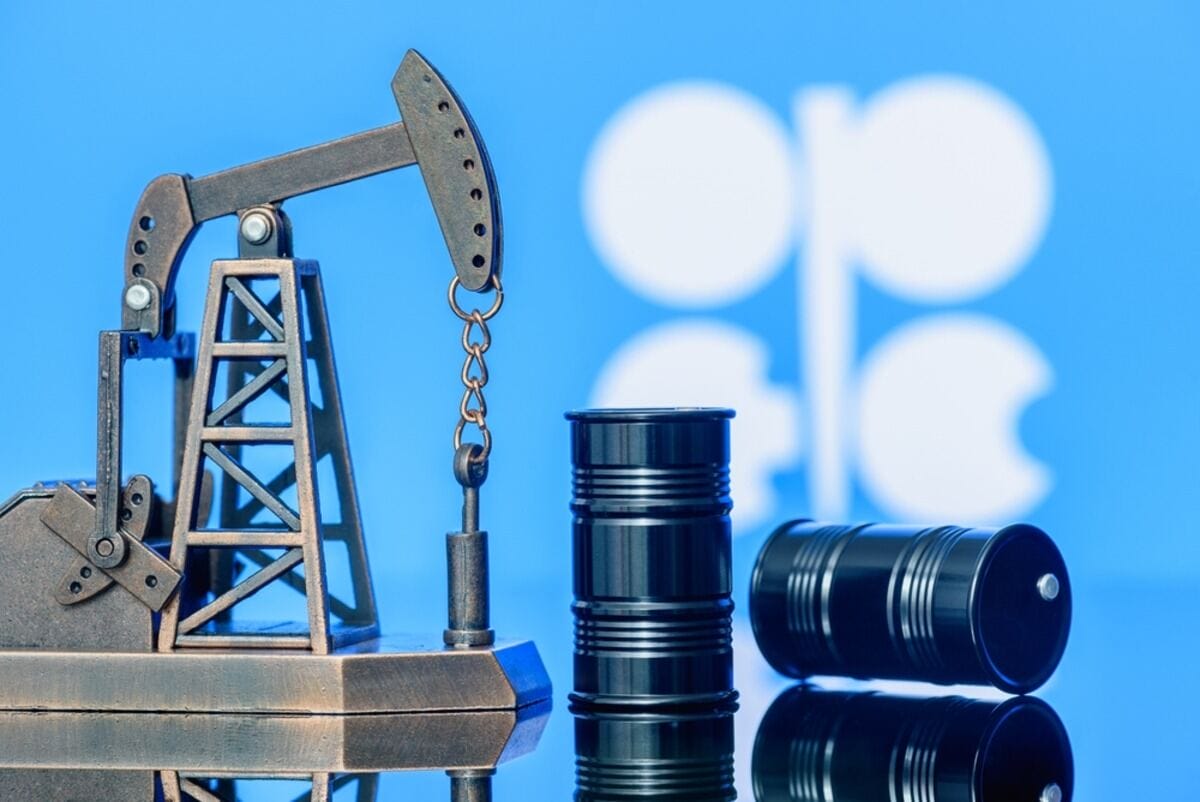OPEC and other oil producers in the OPEC+ alliance reached an agreement to implement voluntary production cuts amounting to approximately 1 million barrels per day (bpd) in the first quarter (Q1) of 2024. This decision came after Saudi Arabia announced its intention to extend its own output cut of 1 million bpd.
The online meeting held on Thursday by the alliance of the Organization of the Petroleum Exporting Countries (OPEC) and its allies, including Russia, who collectively produce over 40 percent of the world’s oil, concluded with the issuance of a statement summarizing the voluntary production cuts announced by participating countries.
In addition to the production cuts, OPEC+ also extended an invitation to Brazil, one of the top 10 oil producers, to join the group. Brazil’s energy minister expressed the hope to become a member in January 2024.
Read more: OPEC+ considers deeper oil cuts ahead of Thursday’s meeting
The purpose of the meeting was to discuss production levels for 2024, as there were concerns about a potential surplus in the market once Saudi’s 1 million bpd cut expires the following month.
In a statement, OPEC announced that the total production cuts from eight producers amounted to 2.2 million bpd, without initially providing specific details. This figure includes the extension of voluntary reductions by Saudi and Russia, which account for 1.3 million bpd.
The additional reductions of 900,000 bpd announced on Thursday include a decrease of 200,000 bpd in Russia’s fuel exports, with the remaining cuts distributed among six members.
Russian Deputy Prime Minister Alexander Novak stated that Russia’s voluntary cut would apply to both crude oil and petroleum products. Furthermore, Russia will further reduce its exports during the same period, from 300,000 to 500,000 bpd, as announced by Novak.
Several countries
The United Arab Emirates (UAE) also confirmed its commitment to the production cuts, agreeing to reduce its output by 163,000 bpd. As a result, the UAE’s oil production will amount to 2.912 million bpd until the end of March 2024.
Meanwhile, Iraq also declared its commitment to further reduce production by an additional 220,000 bpd in Q1. As a result, Iraq’s crude oil production will be maintained at 4 million bpd until the end of March 2024, contributing to market stability.
Several countries, including Saudi, Russia, the UAE, Iraq, Kuwait, Kazakhstan, and Algeria, expressed their intention to gradually phase out the output cuts after Q1, depending on market conditions.
OPEC+ has prioritized reducing output due to declining prices, which dropped from around $98 in late September. Concerns regarding weak economic growth in 2024 and the anticipation of surplus supply have added to the focus on production cuts.
How the market responded
The market response to these voluntary cuts has been disappointing, as there was no collective agreement reached by OPEC+. Oil prices initially rose by over 1 percent but fell afterward, as reported by Reuters. Brent crude futures for January delivery closed at $82.83 per barrel, experiencing a decrease of 27 cents or 0.3 percent. The February contract, starting trading as the closest maturity month on Friday, dropped $2 or 2.4 percent, settling at $80.86 per barrel. U.S. West Texas Intermediate (WTI) crude futures fell by $1.90 or 2.4 percent, ending at $75.96 per barrel, resulting in a $6.2 decrease for the month.
Since the end of 2022, OPEC+ has implemented production cuts totaling approximately 5 million bpd. These measures aimed to address limited supplies in an attempt to boost prices, which have been affected by economic uncertainty and higher interest rates.
The coalition initially reduced production by 2 million barrels following the 23-member meeting in Vienna, which took place after a series of video conferences due to the COVID-19 pandemic. In May, nine members, including Saudi and Russia, announced voluntary cuts amounting to 1.6 million bpd.
Furthermore, OPEC+ has extended an invitation to Brazil to join the alliance, with hopes of welcoming Brazil as a member starting in early 2024. The formation of the alliance in 2016 was a response to the challenges posed by competition from the United States (U.S.).
For more news on energy, click here.








